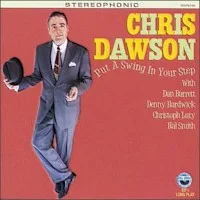
Styles: Vocal
Year: 2003
File: MP3@320K/s
Time: 51:31
Size: 118,3 MB
Art: Front
(4:14) 1. Sahara
(5:30) 2. How Beautiful
(4:21) 3. The Other Girlfriend
(4:53) 4. Ever Surprised
(5:34) 5. Lightning Crashes
(3:39) 6. Above the Band
(5:18) 7. Changed
(3:52) 8. Natural Wonder
(4:25) 9. Key to the Street
(5:33) 10. Baby, I Need Your Loving
(4:08) 11. Going Home
Phoebe Snow released her last major-label album in 1989, but returned to record-making in 1998 with I Can't Complain, an all-covers album for the House of Blues label. Five years on from that, she is back on Eagle Records with Natural Wonder, which makes a case for artistic reinvention not only because it is the first disc to feature any of her original compositions in 14 years, but also because those songs are largely devoted to issues of self-actualization and spirituality. And one more thing: Snow, who spent much of her major-label career flirting with sophisticated jazz-pop, here returns to very much of a pop/rock style, guided by her co-producer, Jim Chapdelaine, who fills the arrangements with guitar work played by Roger Butterley, Jim Mastro, and himself. That funky sound which Phil Ramone got on Snow's Columbia Records albums of the '70s is gone. So, to a large extent, is the confusion about whether Snow is a singer/songwriter or an interpretive singer. There are only two covers on the album, and while one of them is the sort of thing old fans might expect, a take on the Four Tops' "Baby, I Need Your Loving"; the other is one they probably wouldn't: a moody, intense reading of rock band Live's '90s hit "Lightning Crashes."
But that's only two songs out of 11; the rest are Snow originals, albeit eight of them co-writes with a variety of others. On them, Snow makes clear at the outset that she is an emotional veteran who has made it through with philosophical and spiritual help. Opening track "Sahara" is not about the desert, it's about a person named Sahara Sunday Spain, whom Snow thanks in the acknowledgements for "divine inspiration," something one would have thought only God could provide. But Sahara does do something: "She says don't be frightened," Snow explains in the chorus, "Says we're all enlightened." The person or being giving guidance in the next song, "How Beautiful," is not named, but seems equally helpful. "You are my mantra," Snow begins. Those of a less religious turn of mind may be more comfortable with the more down-to-earth self-help messages conveyed in the bouncy "Above the Band," which is full of advice "Tell a joke, don't smoke, be a little careless," etc.and with the emphatic "Changed," in which the heightened language is leavened with more practical matters. "I've been changed/Purified by the flame," Snow proclaims, adding, "I remember how my last $20 was spent." Happily, all this concern with uplift has not prevented the songwriter from falling in love now and then, although, as usual, the experience is not a smooth one, as revealed in "The Other Girlfriend" (that's what the singer complains she is) and "Key to the Street," in which Snow, in her only sole composition, heeds the advice of a psychic to turn out a succession of unsuitable suitors. Ultimately, the Snow fan is likely to be less concerned with whatever spiritual guidance she has followed to keep her going to this point than relieved that, once again, it is possible to hear her sing on a disc and not just in a TV or radio commercial. Her voice itself remains a natural wonder, and if the jazz elements of her music have been purged this time around, she is just as good a rock singer as she ever was, making her return to action a cause for celebration. ~ William Ruhlmann http://www.allmusic.com/album/natural-wonder-mw0000034018
Personnel: Phoebe Snow (vocals); Jim Chapdelaine (various instruments); Roger Butterley (acoustic & electric guitars, synthesizer, percussion, background vocals); Steve Burgh, David Z, James Mastro (electric guitar); Michael Mancini (piano, Wurlitzer piano, organ, synthesizer); Brian Dozoretz, Tim Tindall (bass); Shannon Ford (drums, percussion, loops); Jon Peckman (drums, percussion).
Natural Wonder









